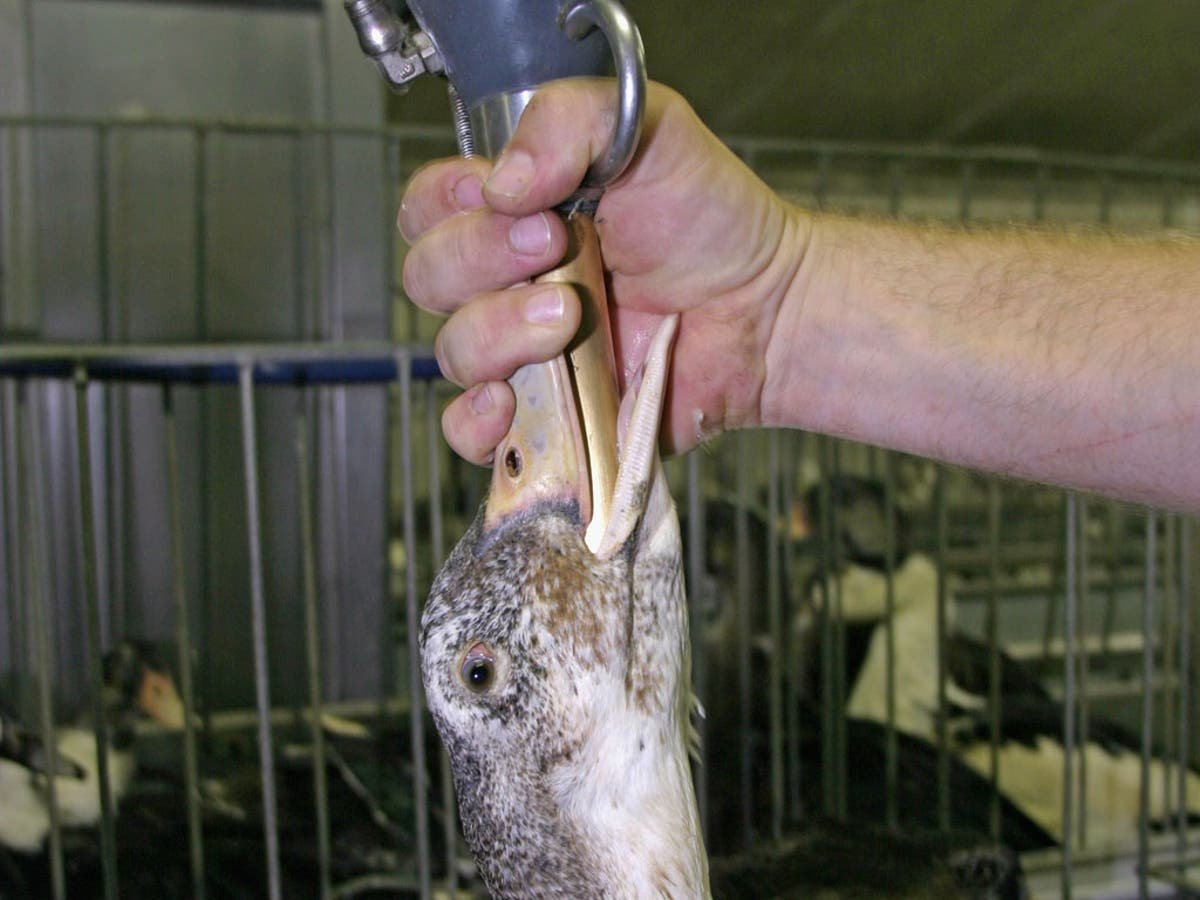When asked if young, aspiring farmers ever inquired about buying his farm, Marcus Collinson just laughs.
“No young farmers are buying farms,” he said, adding it’s why he sold his four properties southwest of London, Ont., to an investor in May and June 2020.
The Toronto-based company that bought them is Bonnefield, Canada’s first and largest farm real estate investment corporation. It holds more than $1.4 billion in assets across seven provinces, representing 140,000 acres (nearly 56,656 hectares) of farmland, according to its website.
The number, however, could be far higher.

According to Ontario land registry records, Bonnefield owns 464 farms across Ontario alone, including the four London-area farms Collinson sold to the company in 2020, along with the house he lives in, which he now leases back from the company.
Collinson, 64, wouldn’t say why he sold to Bonnefield, but many farmers are confronted with tough decisions about their operations as the industry reaches a critical juncture.
As a whole, farmers skew older than the general population and the sector carried $146 billion worth of debt last year, according to Statistics Canada. That’s placing immense pressure on those who till the land to confront the practical implications of their choices and the emotional weight of preserving a way of life that has defined generations.
“It’s nice to own your own land. Of course it is,” Collinson said. “Everybody wants to own their own home. Every farmer wants his own farm. Not everybody can afford their own farm. That’s just the way it is.”
‘Extremely difficult’ for small farms to buy land
If that sounds familiar, it is.
Experts say the economic forces now reshaping agriculture are similar to ones that have transformed residential real estate over the last two decades, with investors — from pension plans to well-to-do urban families — fuelling speculation and driving up real estate prices.
“Any time you increase the amount of buyers and increase the demand, it’s definitely going to contribute to the increases in values,” said Ryan Parker, an agricultural real estate appraiser with London-based, Valco Consultants.

In the 11 counties Parker monitors in southwestern Ontario, farmland values have risen 60 per cent from 2020 to 2023, to an average of about $35,000 an acre — a price that puts land acquisition out of reach for many.
“It’s extremely difficult in our market right now for the small guys, for the new producer to be able to buy land. There’s no doubt about that.”
Parker said it might explain why a growing number of farmers are willing to sell to institutional investors like Bonnefield. Farmland values are high, some farm budgets are stretched and many farmers are looking to unlock equity in order to expand or even get out of the business altogether.
“As far as the benefit of selling to them or selling to your neighbour — it really just goes to the top bidder,” said Parker. “You probably don’t have a lot of other consideration than that.”
Investor owners are reshaping rural communities
Large, established farm families still make up the bulk of buyers of farmland, but a growing number of investors from outside the sector are now looking to put their money into agriculture because many believe it’s a safe financial bet and a bulwark against the twin problems of inflation and stock market volatility.
Andre Magnan, a professor of sociology at the University of Regina who studies the growing influence of financial and corporate actors in agriculture and how it reshapes food and farming, said deep-pocketed investors are making it virtually impossible for small or especially new farmers to acquire land.
“More urban people are becoming interested in farmland as an asset class, as a place to park their money,” said André Magnan, a University of Regina sociology professor who studies the growing influence of financial and corporate actors in agriculture and how it reshapes food and farming.
Magnan said the purchase of agricultural real estate is still overwhelmingly dominated by established, multi-generational farm families looking to expand their operations. However, he added, a growing number of investors and speculators are starting to snap up farmland, which is widely seen as a stable investment.
“I do think that there is a risk that this type of alternative financing model is speeding up some of the consolidation that we see in agriculture and, as those farms get bigger and fewer, that emptying out of the countryside that has been a longstanding trend will continue.”
Magnan said investors aren’t necessarily to blame, but they’re accelerating a pattern evident in rural demographics across Canada. While Ontario’s urban population doubled from 1966 to 2021 — from seven million to 14.2 million people — the rural population shrank slightly, from 2.6 million to 2.5 million.
The consequences don’t just end at demographic change, Mangnan said. There is genuine worry that with soaring farm prices, its value could outstrip the ability of farms to make profit.
“If those things become decoupled, then I worry that there could be some kind of a correction in the future that would be bad for farmland owners,” he said.
“We don’t want this to get out of hand where it’s just a kind of speculative bubble in farmland.”
Bonnefield aims to keep farmland for farming, CEO says
“I understand the concern and I deeply sympathize with it,” Bonnefield CEO Tom Eisenhauer said of the demographic changes in rural communities.
He said that unlike developers, municipalities or even wealthy urban families looking for a country home, Bonnefield seeks to keep farmland for farming.

He said buying small farms and leasing them back to farmers gives smaller producers better access to the capital they need to expand their operations.
“I understand the complaint, but the No. 1 problem for farmers anywhere, from B.C., to Nova Scotia to southern Ontario, is access to capital to continue to grow their business.”
Eisenhauer said Bonnefield allows farmers to plant what they want, when they want; the only provision is they pay rent and adopt sustainable practices to ensure the land will continue to produce crops for generations to come.
“Without farmland, there’s no farming,” he said. “I just believe very firmly in the need to protect high-quality farmland in this country.”
As part of that effort, Bonnefield has railed publicly against the Ontario government’s Bill 185, legislation critics say promotes urban sprawl and will loosen rules around developing farmland close to urban areas.
“I would love to be able to buy up all the farmland around the Golden Horseshoe and preserve it, protect it forever, but we just can’t afford it, you know, because of that speculation,” Eisenhauer said.
The company is also buying up farmland in areas it believes will become more agriculturally productive as climate change creates better growing conditions further north. Out of the 464 farm properties Bonnefield owns in Ontario, the company’s highest concentration of ownership is in Timiskaming, with 77.
One of the early things I was taught is farming is about balancing labour, land, money, livestock, crops, machinery, and you have to find your own balance.– Marcus Collinson
Eisenhauer said most people wouldn’t think of New Liskeard, a small lakeside community on the Ontario-Quebec border about two hours north of North Bay, as a farming powerhouse, but with climate change, it might be one day.
“Timiskaming is sort of on the leading edge of the positive impact that climate change is going to have on agriculture in Canada,” Eisenhauer said. “They’re beginning to grow beans and are beginning to grow corn. They’re even beginning to experiment with potatoes up there because the growing season is extending.”
The future remains to be seen.
In the meantime, Collinson seems happy with the arrangement he made with Eisenhauer’s company. He said he doesn’t need to own his land.
“Land is part of the equation,” Collinson said. “One of the early things I was taught is farming is about balancing labour, land, money, livestock, crops, machinery, and you have to find your own balance.”










